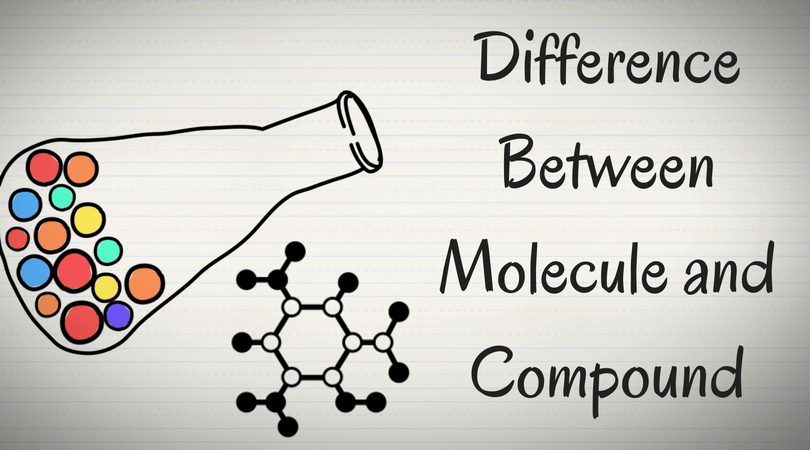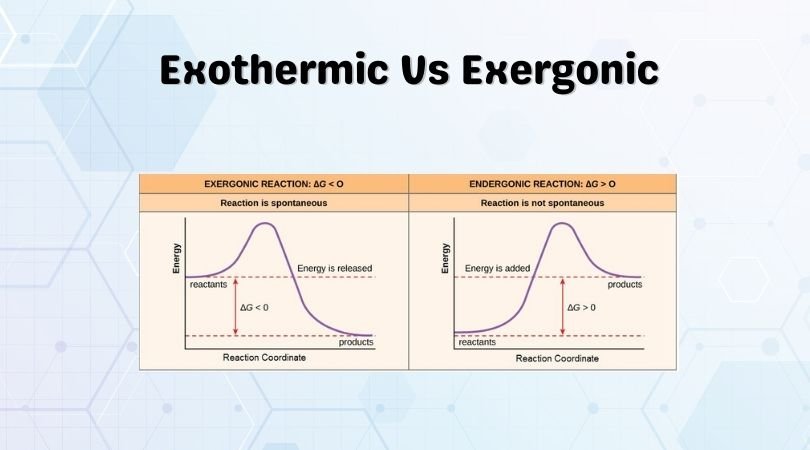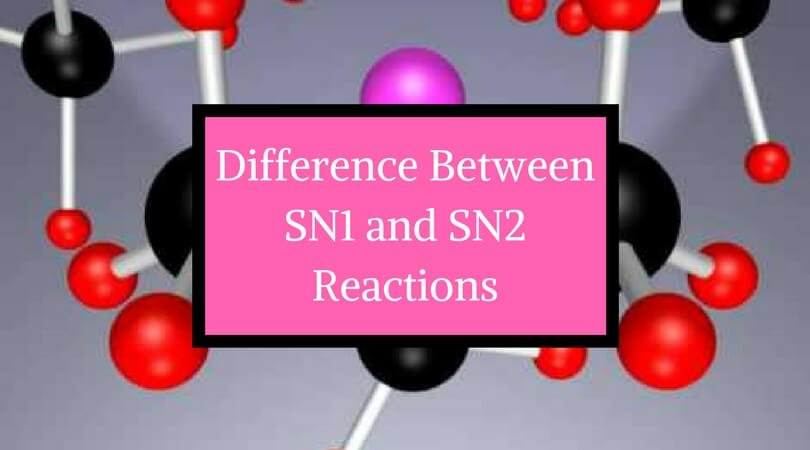While starting with chemistry basics, it is vital to understand the difference between molecule and compound. These terminologies are often used in several concepts and are one of the fundamentals that you should be thorough with. And to help you understand the differences, I will take you through the definitions of both molecules and compounds along with their differences.
Contents
Compound vs Molecule
Molecule:
When any two or more atoms form chemical bonds, they form a molecule. These molecules can be of various types, such as:
Homonuclear molecules: The molecules that consist of atoms of the same element such as Ozone, Hydrogen gas, Nitrogen, and more. Depending upon the number of atoms participating in bond formation, the molecules are monoatomic, diatomic, and polyatomic.
Molecules having two atoms are known as diatomic, whereas the ones having more than two atoms are known as polyatomic molecules.
Heteronuclear molecules: Molecules that consist of the atoms of different elements are called heteronuclear molecules. Like homonuclear molecules, these molecules can also be diatomic or polyatomic, depending upon the number of atoms in the molecule.
Compound:
A group of atoms of two different elements held together by chemical bonds such as ionic bonds, covalent bonds, metallic bonds, etc is called a compound.
There are various types of compounds, such as:
- Covalent Molecules
- Inorganic compounds
- Organic compounds
- Metallic compounds
Difference between molecule and compound
| Compound | Molecule |
| A compound is a group of atoms of different elements held together by chemical bonds. Atoms forming compounds form ionic or covalent bonds. | A molecule is a group of two or more similar or dissimilar atoms that are held together by chemical bonds. There are mostly covalent bonds between the atoms of the molecules. |
| A molecule of water is a compound as it has two atoms of Hydrogen and one atom of Oxygen. | Molecules can be both homonuclear such as Ozone ( O3) and heteronuclear ( HCl). |
| The proportion of all the atoms is fixed or predefined for any given compound. | It is the smallest unit of the compound, having all the compound’s physical and chemical properties. |
| A compound can be represented by using a structural formula that can help us understand how atoms are bonded with each other in the compound. | Molecular formulas or chemical formulas are used to represent a molecule. |
| Any given compound is stable in its physical form due to the structure formed. | A given molecule can be stable or unstable depending upon its structure and properties. |
| Examples: Alcohol, Acetic Acid, Sodium Chloride. | Examples: Ozone, Nitrogen, Water, etc. |
Are all compounds molecules?
Yes, all compounds are molecules. I will elaborate on this answer by giving you an example. Let us consider the molecule of water having a molecular formula of H2O. It is a heteronuclear molecule that has both Hydrogen atoms and an Oxygen atom. But as both these atoms are of different elements, it is also considered as a compound. So if you look at all the molecules, specifically heteronuclear or the ones with atoms of different elements, they are also called compounds.
However, not all compounds are molecules. For example, if you look at NaCl or table salt, one cannot consider it as a molecule as Sodium and Chlorine have ionic bonds. And they are also arranged in the ionic lattice, which makes it a compound. Hence all the compounds are molecules, but not all molecules are compounds.
Concluding Remarks
I have tried to explain all the differences in this blog to help you learn other chemistry topics with ease. These terminologies will be used frequently in the courses or topics you will come across. You can refer to this article whenever you have doubts regarding a given compound or molecule.
Also, here is a fun activity, mention one compound and one molecule in the comments below!





Very helpful for my upcoming test. Thanks.
Mam Thanks For sharing this amazing info.
Formula unit mass is taken for those substances whose constituent particles are ions.
Hi I’m Karen and strongly agree with all these points. I will make sure my kids read this all day long.